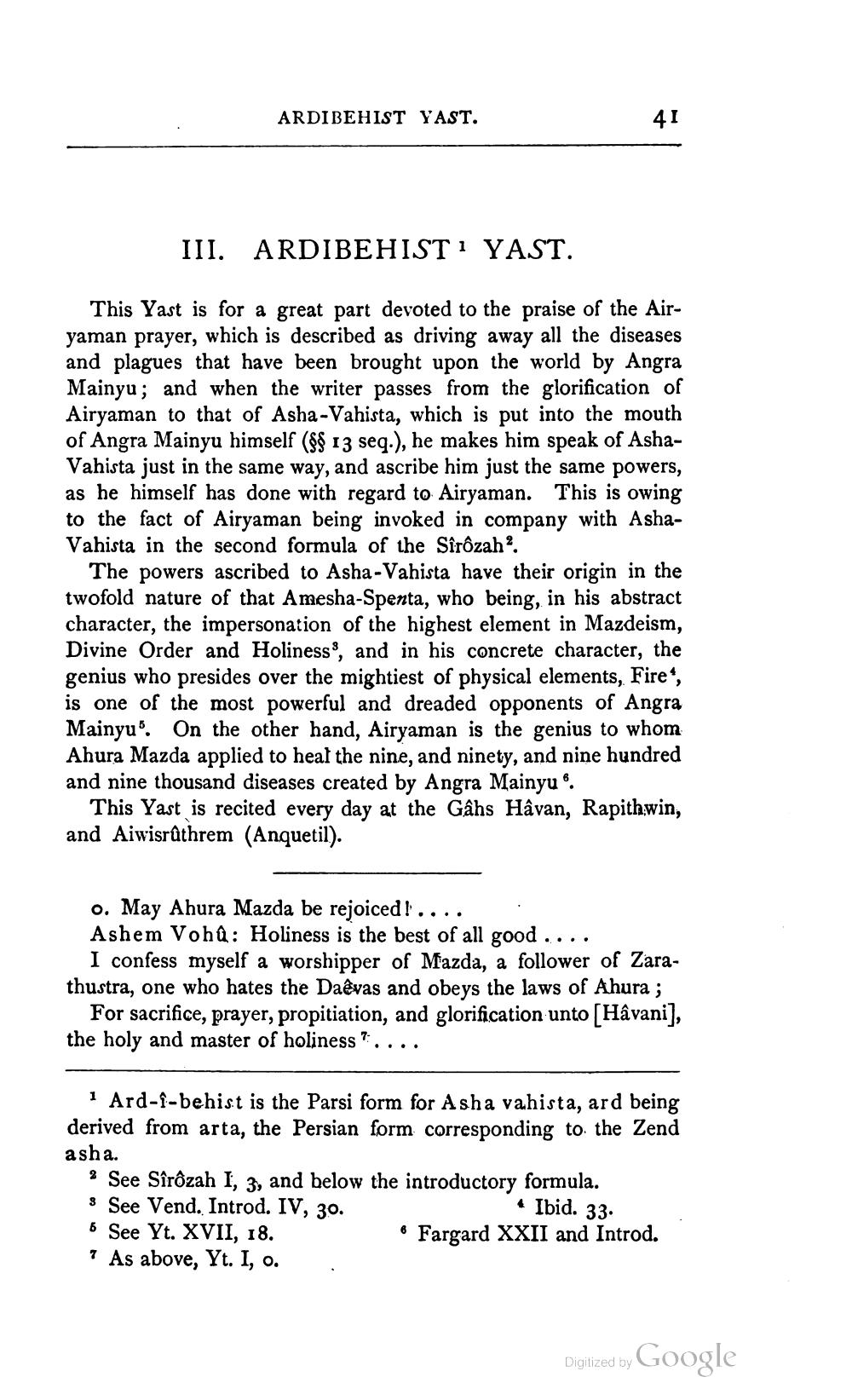________________
ARDIBEHIST YAST.
III.
ARDIBEHIST YAST.
This Yast is for a great part devoted to the praise of the Airyaman prayer, which is described as driving away all the diseases and plagues that have been brought upon the world by Angra Mainyu; and when the writer passes from the glorification of Airyaman to that of Asha-Vahista, which is put into the mouth of Angra Mainyu himself (§§ 13 seq.), he makes him speak of AshaVahista just in the same way, and ascribe him just the same powers, as he himself has done with regard to Airyaman. This is owing to the fact of Airyaman being invoked in company with AshaVahista in the second formula of the Sîrôzah2.
41
The powers ascribed to Asha-Vahista have their origin in the twofold nature of that Amesha-Spenta, who being, in his abstract character, the impersonation of the highest element in Mazdeism, Divine Order and Holiness, and in his concrete character, the genius who presides over the mightiest of physical elements, Fire*, is one of the most powerful and dreaded opponents of Angra Mainyu. On the other hand, Airyaman is the genius to whom Ahura Mazda applied to heal the nine, and ninety, and nine hundred and nine thousand diseases created by Angra Mainyu®.
This Yast is recited every day at the Gâhs Hâvan, Rapithwin, and Aiwisrûthrem (Anquetil).
o. May Ahura Mazda be rejoiced!....
Ashem Vohu: Holiness is the best of all good....
I confess myself a worshipper of Mazda, a follower of Zarathustra, one who hates the Daêvas and obeys the laws of Ahura ;
For sacrifice, prayer, propitiation, and glorification unto [Hâvani], the holy and master of holiness"....
1 Ard-f-behist is the Parsi form for Asha vahista, ard being derived from arta, the Persian form corresponding to the Zend asha.
2 See Sîrôzah I, 3, and below the introductory formula.
Ibid. 33.
3 See Vend. Introd. IV, 30.
6 See Yt. XVII, 18.
• Fargard XXII and Introd.
7 As above, Yt. I, o.
Digitized by
Google




